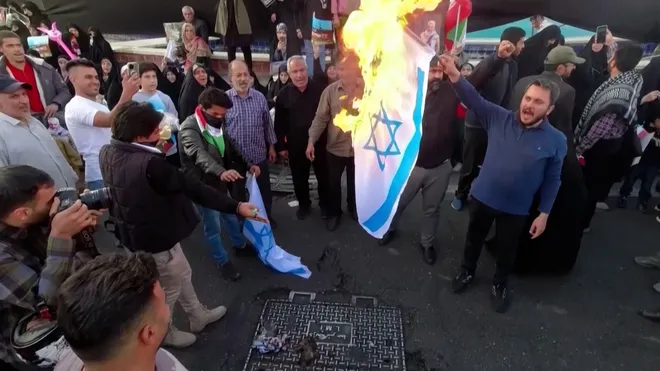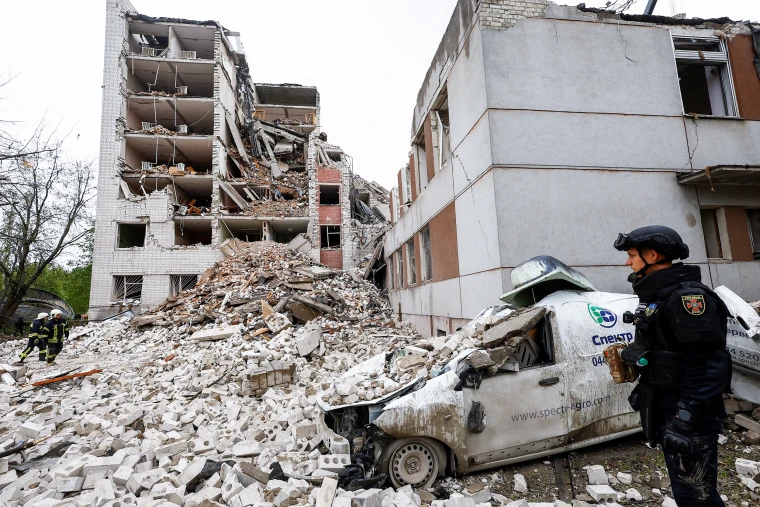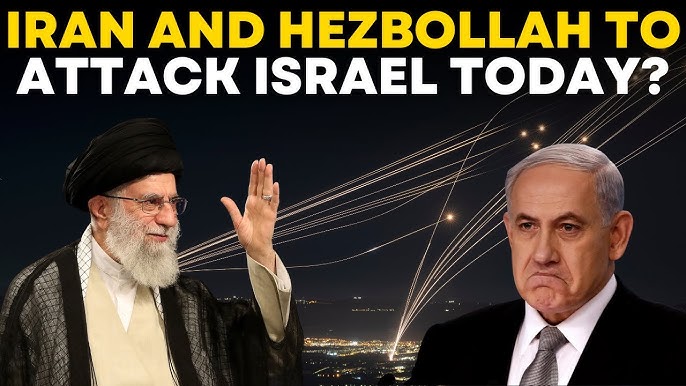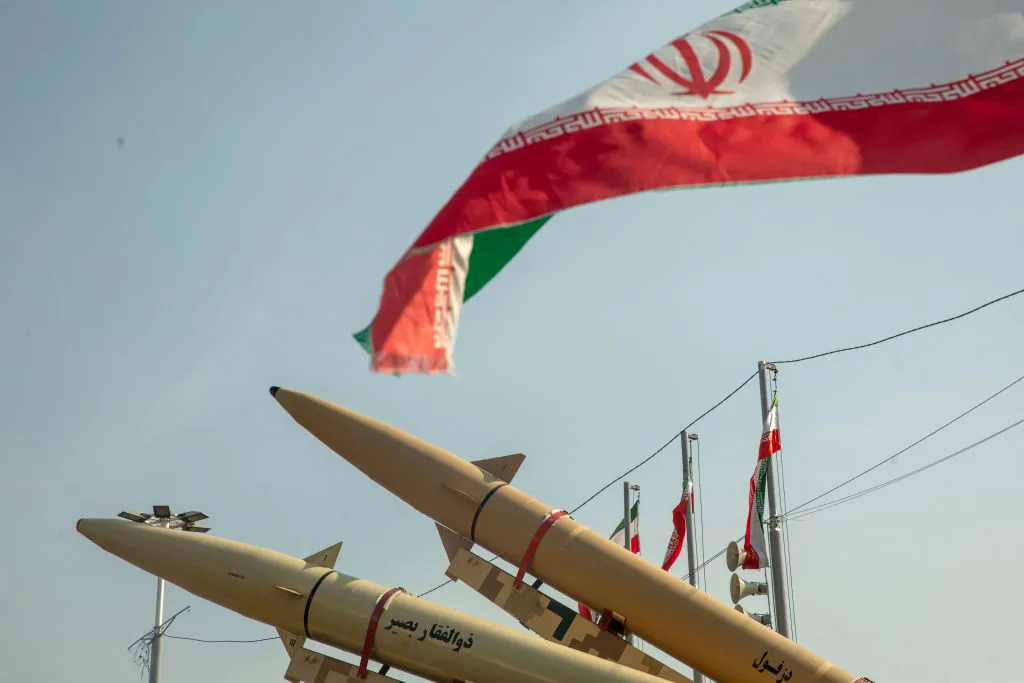Will Iran attack on Israel Latest News
Will Iran attack on Israel? The Middle East, a place of great tension in the world of politics, is yet again at risk of a major war. This time round it is about the possible attack by Iranians on Israel which could have far-reaching effects not only to the region but also to the whole world at large. The tensions are escalating and the US which is a key ally of Israel has become increasingly worried about the possibilities for future military conflicts. These are some high stakes against which diplomats have to negotiate ceasefire in Gaza.
Rising Tensions in the Middle East
Decades-long hostility between Israel and Iran has been characterized by ideological, political, and military confrontations. In addition, these hostile relations have escalated through Iran’s support for militant groups in Gaza Strip as well as her nuclear programs while Israel’s actions within Palestine and alliances with America have further polarized them.
However lately things look bad. The conflict in Gaza has only deepened the rift with intensified fighting between Israeli forces and Hamas. This has raised fears that there could be direct combat engagements since Iran, a staunch defender of Hamas, has made threats against Israel.
The US Perspective
United States fears that this week Iran may attack Israel so closely watches over it. Such an event could trigger a wider conflict, drawing in multiple nations and leading to widespread instability. Following 1979 Islamic Revolution that led to establishment of an Islamic Republic and subsequent severing of diplomatic relations between two countries, historical links between America and Iran have been strained.
Israel is more than just an ally but rather serves as a strategic partner for America within Middle East. For many years now USA has supported her including giving aid mainly military wise together with intelligence information plus diplomatic efforts towards peace deals. Indeed any possible Iranian strike on this Jewish nation raises questions over a possible spreading of the conflict which might endanger American interests in the area.
Israel’s Preparedness
The Israeli state is not new to wars and had been readying itself for clash with Iran over years. The nation’s defense strategies are strong, bolstered by its sophisticated military technologies as well as famous Iron Dome missile defense system. This has been vital in intercepting rockets from Gaza, and would play a crucial role in any attempt to repel Iranian missiles.
Regular military exercises and drills have also been taken by Israel to ensure they keep their forces ever ready so that incase of anything they wouldn’t be caught off guard. These preparations indicate how seriously Israel considers Iran a serious threat.
Iran’s Position
Also, Iran looks at her conflict with Israel within the broader context of opposition against western hegemony in Middle East region. Whenever referring to Israel, the supreme leader of Iran has always talked negatively about it as a Zionist regime that must be wiped out.
Through range of proxy forces across entire region, ballistic missiles together with drones among others form part of her huge military capabilities. Should Iran decide to go head on with Israel; this could end up being through an assortment of missile attacks compounded by proxy assaults which may overwhelm defenses mounted by Israelis.
Iranian officials have made it clear that any Israeli aggression would be met with retaliation, and they have dropped hints of an imminent strike. This rhetoric has done nothing but intensify the urgency in Washington and Tel Aviv.
Diplomacy
Despite the looming threat of conflict, diplomacy has been ongoing to avert it. Hoping to deescalate the situation before it gets out of hand, the US has joined other international actors in pushing for a ceasefire in Gaza.
Secretary-General António Guterres of the United Nations also called for an immediate end to the violence. However, achieving a ceasefire is easier said than done, given deeply rooted animosities and complex web of alliances in this region.
Ceasefire Challenges
One roadblock to having a ceasefire is Hamas’ position which does not give them much reason for peace if there are no major concessions from Israel. Additionally, Iran’s influence over various militant groups in Gaza makes things more complicated because Tehran may encourage fighting as part of its wider strategy against Israel.
But can diplomats convince all parties involved to agree on a ceasefire? It seems unlikely particularly because there are trust issues among these actors. The risk of Iran being drawn into a wider conflict without such an agreement is still quite high.

Potential Scenarios
If Iran were to attack Israel, repercussions could be dire. A direct clash between these two nations might quickly precipitate regional war drawing in others as well. Consequently, some Gulf States which are US-Israel allies may get compelled into taking sides thus further destabilizing Middle East.
The consequences could be far-reaching globally too in case conflicts arise elsewhere again. Oil prices already volatile may soar bringing about economic instability across-the-board whereas political landscape might change when nations reconsider their alliances or strategies based on evolving situations.
US Military’s Role
The US military is heavily involved within this region ranging from bases across that area and significant naval presence at Persian Gulf. As escalation looms, these forces remain alert.
These bases are of strategic importance to say the least. They enable the US to exert its influence over this area and quickly respond to any threats against its allies. In case of an Israeli attack by Iran, these bases would most likely form a major part of America’s response.
Coordination Between US and Israeli Forces
United States-Israel have had long-standing military cooperation that has grown stronger in recent years. Both countries engage in joint military exercises which helps them prepare for possible conflicts.
A key part of this alliance is intelligence sharing. The United States and Israel regularly exchange data on threats posed by certain entities within that region which keeps them both ahead in terms of preparedness levels. Cooperation regarding intelligence would be critical for collaborative responses should Iran retaliate.
Public Opinion
The public reaction in Israel, Iran and the US has been varied following news about a looming conflict. In Israel, people fear coupled with determination prevails as many citizens brace themselves for what they perceive as a worst-case scenario relying on their army’s capability to defend the country.
In Iran, public opinion is largely formed by government propaganda, which paints the picture of Israel as an enemy of Islamic faith and a medium for western imperialism. However, some Iranians are also concerned about the cost another war would have on their nation.
Opinions in the US are sharply divided; some Americans favor tough stance on Iran while others fear getting entangled into yet another conflict in the Middle East. Demonstrations against the upcoming war have already begun in various cities across America, showing that American citizens’ opinions concerning this matter are complex and often confusing.

Media Coverage and Propaganda
The media’s approach to reporting varies widely depending on where it comes from. In America, leading media houses seem to talk much about possible hazards posed to Israel and how it should respond strongly. On its part, Israeli media focuses on country’s right to self-defense against Iran.
In state-controlled Iranian media, however, conflict is depicted as a just struggle against Zionism and Western Imperialism. Propaganda efforts have gained momentum with government using media to support its position against Israel publicly.
Public opinion has been influenced by social media as well. Twitter accounts as well as Facebook pages offer commentary from all sides; people use them to put forth ideas regarding what they feel or imagine for their future lives. Yet these platforms could equally become conduits of false information or propaganda hence making it difficult for publics to identify facts from fictions.
Impact on the Global Economy
There may be significant economic implications resulting from potential conflict between Iran and Israel. One immediate impact would probably be high oil prices if there was any war involving Middle East countries since oil is one of its end products. This would raise costs for consumers and companies worldwide leading to possible global recession.
Another concern is trade disruptions. The Middle East plays a key role in world trade because it serves as a gateway between continents thereby connecting shipping lanes and supply chains that link Asia with Europe among others. This would further aggravate the current global economic challenges as a result of COVID-19 pandemic.
Iran is already under economic sanctions and any fresh conflict could lead to harsher measures. By these sanctions, Iran is targeted but at the end they affect global economy mainly in sectors like oil and finance.
Long-term Implications
However, it is important to recognize that beyond our present scenario, a crisis involving Iran and Israel has far-reaching implications. For instance, US-Iran relations which are currently fragile may worsen thus making future negotiations even more difficult.
Prospects for peace in the Middle East would also be severely damaged by this. A new war could reinforce existing divisions and make it even harder to find a lasting solution for many conflicts in this region.
Israel would face long-term security challenges with potential threats from Iran and its proxies. To be able to survive in such an unaccommodating neighborhood, the nation will have to remain on guard by continually investing in its defense capability.
Conclusion
The Middle East is a dangerous place; the idea that Iran can attack Israel brings to mind how suddenly things often get out of control. Despite the pessimism, some hope is still present as the US and Israel brace themselves for any eventuality. The international community must cooperate in defusing tensions and finding a peaceful solution which guarantees security and stability in this region.

FAQs
What ignited recent tension between Iran and Israel?
The current strain between Iran and Israel started from Hamas war against Israeli people in Gaza with support from Iran. This situation was worsened by threats made by Iran against Israel during their ongoing conflict.
How does the U.S. prepare itself for an Iranian attack on Israel?
Presently, America is watching closely what will come next at the same time its military forces are on high alert throughout the Middle East. As part of these preparations, joint drills have also been conducted with Israeli’s intelligence sharing among other things.
Will there be a truce amid Gaza?
Forming a ceasefire deal within Gaza is difficult because of deep-seated enmities among players and intricate geopolitics involved in that area; nevertheless talks still go on and it could prevent an escalation into further hostilities.
Could an Iranian assault on Israel affect the world economy?
This would lead to increased oil prices which would slow down trade across borders resulting in more economic difficulties globally; it may also result into new sanctions that will further affect global economics.
What is international diplomacy supposed to do with this kind of situation?
International diplomacy has a role to play in preventing wars through diplomatic means. The intervention of United States, UN and other countries have helped ease tensions through ceasefires thereby avoiding full-scale wars.






